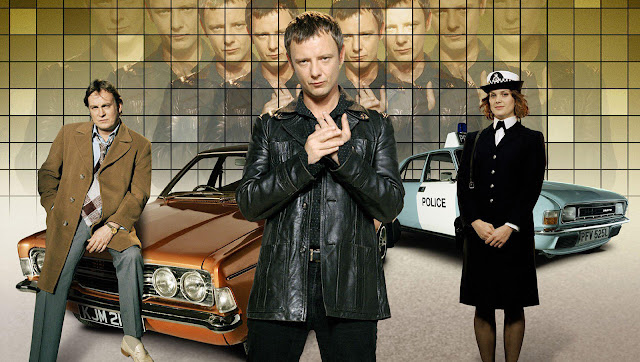Representation in the media
There are many different types of groups that are
represented in the media, usually these groups are represented in some very
stereotypical ways. An example of these groups are immigrants, women, teenagers
and elderly people.
In the media women are usually over sexualised and viewed as
objects rather than people. Examples of this is the countless number of
pictures of half-naked women in magazines and newspapers. Women are usually
over sexualised to appeal to the male target audience with little regards to
the women who pose for these photoshoots. Although men can be over sexualised
in music videos and magazines, mostly it is more balanced towards non-sexualised
pictures. Even when a company is advertising something they usually use half
naked women as ‘eye candy’ to advertise a product or service. Many representations
of women concentrate only on sexuality and emotions, usually also focusing on a
relationship with their children or a romantic partner. In many fairy washing
up liquid ads women are also portrayed as cleaning and doing housework, usually
conforming to gender stereotypes. Although there are many stereotypical representations
of women in the media there has been a recent boom in adverts and media that
challenge these stereotypes and show women in a realistic and refreshing view,
usually showing women as empowering. Examples of this is in the hunger games
series where Jennifer Lawrence is represented as a leader and hope and is never
sexualised throughout these movies.
Teenagers and the younger generation are usually represented
very negatively in the media. During many riots and protests the younger
generations are portrayed as dangerous and violent, even though the actions of
few people created an unfair stereotype for the young population. Because of
this unfair representation usually when there is something positive in the
media about a teen it is because they have done something out of the ordinary
and almost heroic. Usually because of this unfair stereotype newspapers usually
write about how teenagers are mischievous and cruel, when in reality that’s
farthest from the truth.
With the recent boom in immigration and refugees traveling
to the U.K. there has been much unfair press and stereotypes in the media. A lot
of these representations portray immigrants as stealing our jobs and harmful
for the economy. Much of this unfair media stereotyping and attention has
influenced the Brexit election and played a key part in the countries decision.
The media represents immigrants as ruining the economy, when in reality
immigrants and refugees come to the U.K. to work for minimum wage and often
force themselves to live in cramped appalling conditions just to improve the
quality of life for their family back home.
Older people are
represented as grumpy and not being as able as others in the media. Much of
advertising is directly appealed to the older generations by getting spots in
the day and often advertising things which help older people do every day
tasks, usually representing the elderly people in these adverts as unable to do
basic tasks. A lot of facial creams and skin care treatments often show
pictures of older people with photo shopped appearances, often with the phrase ’10
years younger’. There are also many tv shows satirising the elderly generation,
such as 100 year old drivers, which usually show this generation as dangerous
with certain things and unknowing of certain newer concepts and technology.
In conclusion many groups are unfairly represented in the media and usually stereotyped to the actions of a few. These representations can be harming for people as they can be taken advantage off because of their stereotyped representation in the media.

Nice essay. It has a good sense of context and I think that it explores different platforms well.
ReplyDeleteI felt that you used a wide range of vocabulary which was effective in detailing your point. Clearly good effort has been shown. :)
ReplyDelete